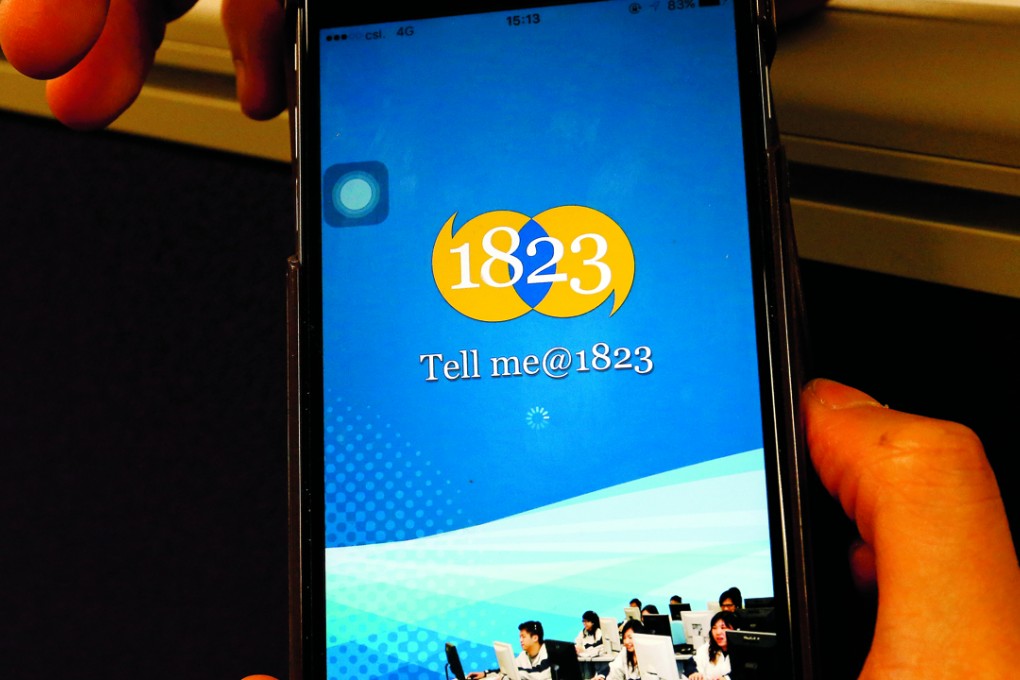How 1823 app has made complaining to Hong Kong government easier
A telephone hotline has evolved into a digital channel for Hongkongers’ complaints big and small. You leave a message about a problem, officials deal with it and message you back. Of course, you can still phone or mail in a complaint, fax it, email it or use social media

Whenever long-time resident Richard Feldman saw garbage that hadn’t been picked up for a while, or spot cracks in the public pavement that should be repaired, he would get on his phone and call 1823, a hotline for residents to get in touch with the Hong Kong authorities.
Soon, he could save himself that phone call. The government service has recently gone digital – users can contact officials on pressing issues ranging from fallen trees and problematic potholes, to taxis that refuse fare, all through the 1823 app on their smartphone.
“I love it. It’s so convenient,” says Feldman. “I leave them a message about where the problem is, and within a few days they complete the job and even send me a message to tell me it’s done,” he says.

He says this number is comparable to or slightly fewer than Chicago and San Francisco, whereas New York receives on average over 20 million calls a year.
1823 was launched in 2001 as a pilot to integrate various government department hotlines together so that residents would only have one number to call. The service triages the calls and messages, and then passes them onto the relevant departments.